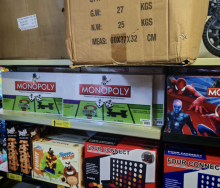The World Customs Organisation (WCO) has a published a training handbook titled Prevention of Illicit Trafficking of Cultural Heritage, Pitch, to help curb contraband of valuable historical artefacts.
In a statement earlier today the WCO called Pitch “a unique, specialised tool aimed at improving the knowledge and know-how of customs officers deployed in the field”.
According to the WCO, some of the countries that are the most affected by cultural contraband practices are states that are in a perennial state of instability and insurrection, if not open and constant conflict – countries like Syria and Mali.
Regions it identified as falling prey to artefact theft included North Africa, the Middle East, the Near Middle East, as well as Central and West Africa.
The WCO declared that the illicit trade in historically sensitive items, “besides causing great suffering and loss of life, have had dire consequences on major cultural heritage sites”.
It added that “trafficking of cultural objects has gained the attention of senior policy-makers and law enforcement officers around the world, particularly due to its links with money laundering and terrorist financing.”
Following intensive consultative work with the relevant UN officials, the WCO embarked on drafting a universal set of guidelines that finally resulted in Pitch.
Pitch training for customs officials in West and Central Africa is planned for this December.













